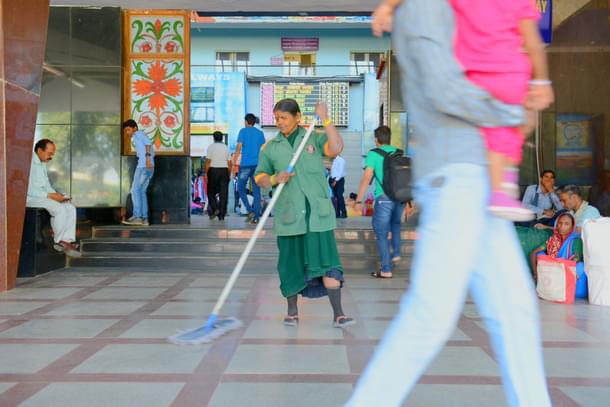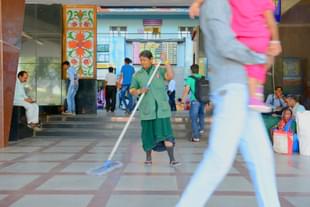News Brief
Annual Cleanliness Survey To Focus On Wastewater Treatment
Arun Kumar Das
Mar 02, 2021, 01:20 PM | Updated 01:20 PM IST
Save & read from anywhere!
Bookmark stories for easy access on any device or the Swarajya app.


Delayed by two months due to Covid pandemic, the annual cleanliness survey was finally launched with focus on parameters pertaining to wastewater treatment and reuse along with faecal sludge.
With about 2,000 assessors on the field to assess the performance of cities, the Swachh Survekshan (SS) 2021 is slated to incorporate over 3 crore citizen feedback through various platforms.
“SS has led to a spirit of healthy competition among cities and towns of India. The journey that started in 2016 with only 73 cities with million-plus population has grown manifold, with 434 cities in 2017, 4,203 cities in 2018, 4,237 cities in 2019 and 4,242 cities in SS 2020, including 62 Cantonment Boards," Housing and Urban Affairs Secretary Durga Shanker Mishra said while launching the field assessment of Swachh Survekshan 2021.
The sixth edition of the annual cleanliness survey began at a web event in the capital on Monday.
SS was introduced by the government in 2016 as a competitive framework to encourage cities to improve the status of urban sanitation while encouraging large scale citizen participation.
"Cities have been regularly filling in their data, updating their progress in the MIS along with running several citizen centric campaigns in preparation of SS 2021. Today, we are happy to formally kick off the survey as more than 2,000 assessors get ready to go on the field to assess the performance of cities," Mishra said.
Every year, the on-field assessments for SS take place between January 4-31. However, the same had been delayed by two months due to the Covid pandemic and will now be conducted between 1-28 March 2021.
The Swachh Survekshan framework is redesigned innovatively every year, to ensure that the process becomes more robust. Keeping in mind the Ministry’s efforts towards ensuring sustainability of the sanitation value chain, the SS 2021 indicators focus on parameters pertaining to wastewater treatment and reuse along with faecal sludge.
Similarly, the crucial issues of legacy waste management and remediation of landfills have also been brought to the fore in this edition of Survekshan.
Touching upon how SS has become a tool for citizen engagement in the spirit of a true ‘Jan Andolan’, the Secretary said, “I am happy to share that the SS 2021 has already garnered over 3 crore citizen feedback through a variety of platforms such as the Vote for Your City App, Swachhata App and Swachh Survekshan portal, amongst others."
The Ministry further announced that apart from ranking cities and States, this year, SS would also be ranking districts (based on the performance of their cities).
Since its launch in 2014, Swachh Bharat Mission-Urban (SBM-U) has made significant progress in the area of both sanitation and solid waste management.
As many as 4,360 urban local bodies (ULB) have been declared open defecation free (ODF), 2,158 cities certified ODF+ and 551 cities certified ODF++.
Moreover, 66 lakh individual household toilets and over 6 lakh community/ public toilets have been constructed/or are under construction.
Additionally, nearly 60,000 toilets across 2900+ cities have been made live on Google Maps.
In the area of solid waste management, 97 per cent of wards have 100 per cent door-to-door collection while 68 per cent of the total waste generated is being processed.
A total of six cities have been certified as 5-Star, 86 as 3-Star and 65 as 1-Star under the Star Rating Protocol for Garbage Free Cities.
The second phase of SBM-U for a period of 5 years (2021-26) has recently been announced in the Union Budget of 2021. The next phase of the Mission will focus extensively on aspects of sustainable sanitation including faecal sludge and wastewater management, along with holistic solid waste management with a focus on curbing and ultimately eliminating the use of single-use plastic (SUP), reducing air pollution through effective management of construction and demolition waste, and reducing soil pollution through remediation of legacy dumpsites.
Arun Kumar Das is a senior journalist covering railways. He can be contacted at akdas2005@gmail.com.





